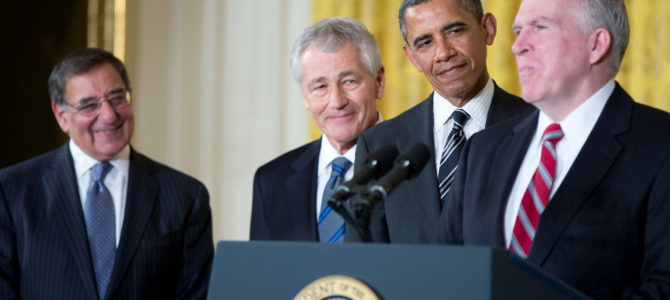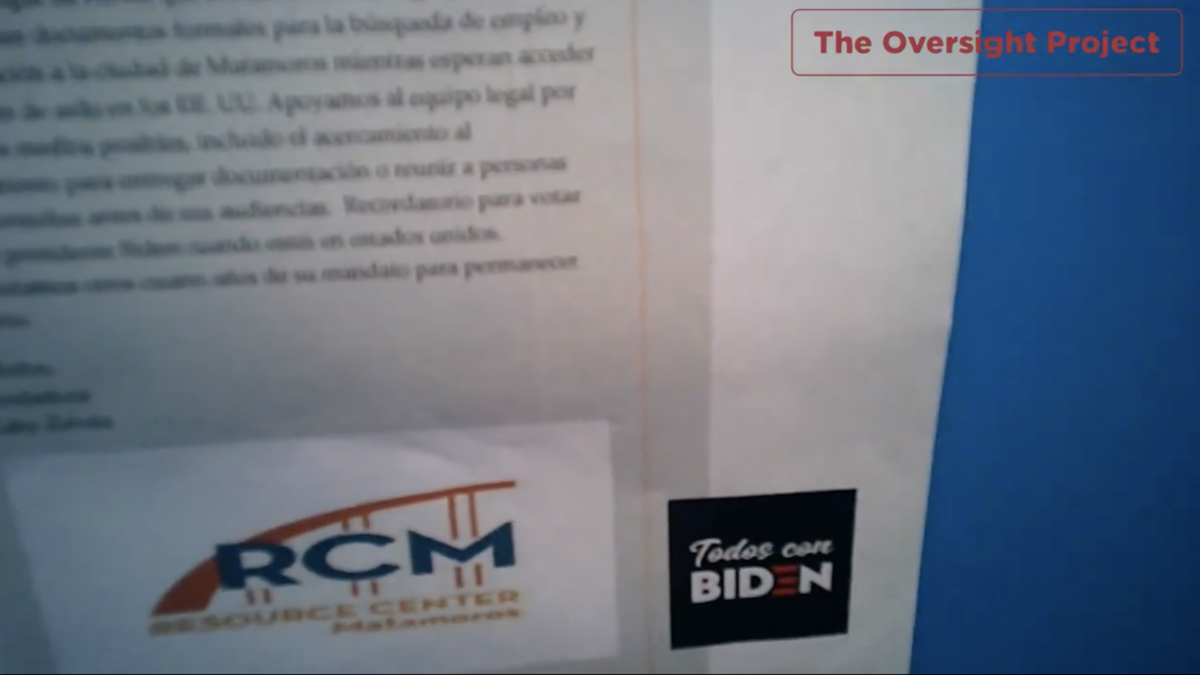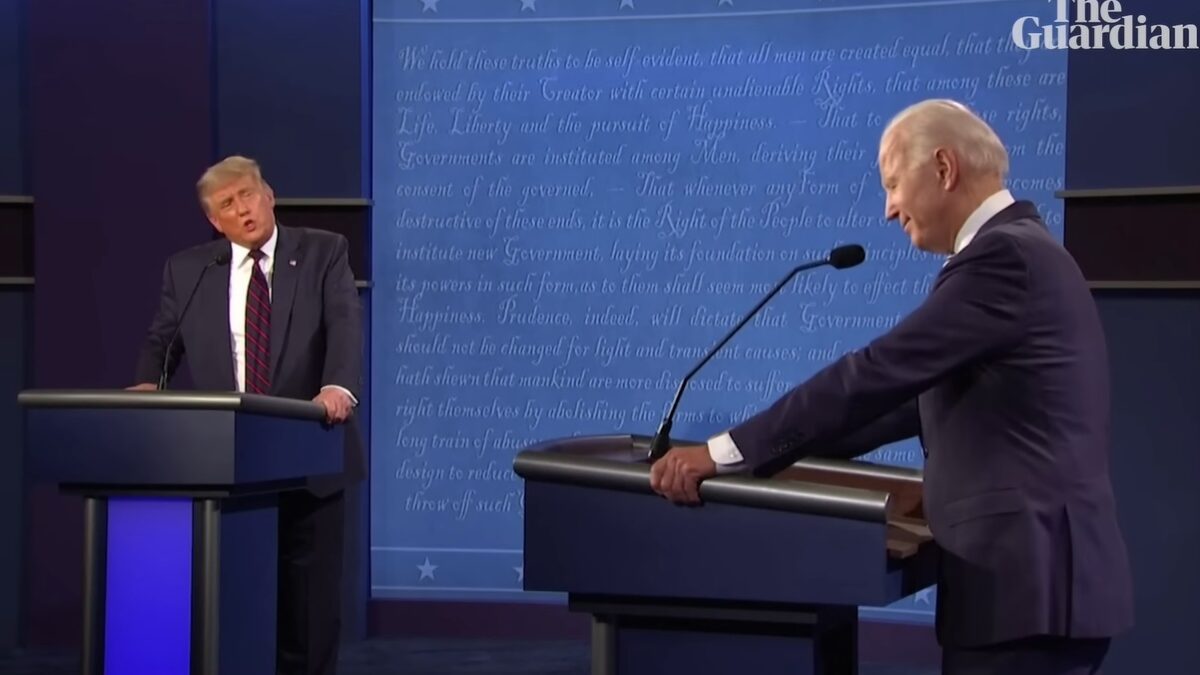
What would Harry Truman do about John Brennan? If you’re from Kansas City, you sometimes think of the moderate Democrat who presided over the Korean War as the 33rd president of the United States. While now a well-regarded former president, Truman’s popularity cratered after he fired the popular commander of Far East forces in the midst of a war.
This historical incident came to mind as I watched former intelligence officials pile on about President Trump cancelling former CIA director Brennan’s security clearance. The American Civil Liberties Union recently opined that “the First Amendment does not permit the president to revoke security clearances to punish his critics.” Would President Truman, a lawyer educated in Kansas City, have agreed?
In December 1950, Truman issued a directive requiring all military officers and diplomatic officials to clear with the State Department all but routine statements before making them public, and “refrain from direct communications on military or foreign policy with newspapers, magazines, and other publicity media.”
MacArthur nevertheless repeatedly exercised his right to free speech to criticize Truman’s relatively dovish approach to battling the communists. For example on April 5, 1951, House Minority Leader Joseph William Martin Jr. embarrassed Truman by reading a letter from MacArthur on the floor of the House.
Truman fired MacArthur for exercising his free speech this way. Truman, a student of history, was informed by the examples of President Lincoln’s conflict with Maj. Gen. George McClellan in 1862 and President James Polk’s recall of Maj. Gen. Winfield Scott after the Mexican-American War.
After he fired MacArthur, Truman’s approval rating fell to 23 percent in mid-1951, which was lower than Richard Nixon’s low of 25 percent during the Watergate scandal in 1974. Yet history has judged Truman’s decision to be both wise and necessary.
The public opposition to Brennan’s loss of a security clearance glosses over the threshold question: Why should Brennan even have a security clearance if he doesn’t work for the government? Philip Bump of the Washington Post recently tackled that question, writing: “Former intelligence officials constitute a community of individuals with detailed, specific knowledge about past security incidents the country has faced. The United States faces recurring threats that often mirror past incidents. With regularity — every four or eight years, for example — much of the leadership of our intelligence agencies sees turnover. Former officials are part of the institutional knowledge of those organizations, and access to that knowledge can be useful.”
Useful to whom? President Trump clearly wants no advice from Brennan, and does not trust him. As Mollie Hemingway pointed out, Brennan was among the intelligence officials who used one of the first briefings of President-elect Trump to engineer a hook to leak the salacious and unverified Christopher Steele dossier. If Brennan used his position as the CIA chief to sabotage the incoming Trump administration, then what possible value would his continued possession of a security clearance have to the Trump administration? None.
Nevertheless, more than 70 former intelligence officials blasted President Trump for threatening to revoke the security clearances of his critics. They argued that former officials should be free to criticize the president without fear that their security clearances might be revoked.
The chilling unspoken assumption behind this outcry is that the intelligence community has a need for Brennan’s continued sage advice, notwithstanding what the president wants. If intelligence agencies chart a Brennan-influenced policy independent of the president’s wishes, then how do the voters exercise democratic control over these powerful agencies?
Article II, Section 1 of the Constitution vests the executive power in the president. Article 2, Section 2 establishes the president as the commander in chief of the armed forces. The CIA is an armed force. It carries out drone strikes and special operations. It is essential to self-government that all such forces remain under political and civilian control.
When Brennan was the CIA director, he, like MacArthur, would have been subject to immediate dismissal for failure to support the president’s policies. So why would he retain any greater entitlement to continued service as a former director? There’s only one president and only one CIA director at a time.
Brennan and all of these former officials are free to exercise their first amendment rights as private citizens. I congratulate Brennan for the entrepreneurial success he enjoys through criticizing the president. Nevertheless, he should not be permitted to credential his speech-for-hire with a security clearance from which the Trump administration derives no benefit.
It’s hard to improve upon Truman’s explanation for such a decision, which rings just as true today as it did in 1951:
With deep regret I have concluded that General of the Army Douglas MacArthur is unable to give his wholehearted support to the policies of the United States Government and of the United Nations in matters pertaining to his official duties. In view of the specific responsibilities imposed upon me by the Constitution of the United States and the added responsibility which has been entrusted to me by the United Nations, I have decided that I must make a change of command in the Far East. I have, therefore, relieved General MacArthur of his commands and have designated Lt. Gen. Matthew B. Ridgway as his successor.
Full and vigorous debate on matters of national policy is a vital element in the constitutional system of our free democracy. It is fundamental, however, that military commanders must be governed by the policies and directives issued to them in the manner our laws and Constitution provide. In time of crisis, this consideration is particularly compelling.
It is just as fundamental that presidents maintain control over U.S. intelligence policies. That includes credentialing potential non-employee advisers with security clearances only when it serves the interests of advancing the president’s intelligence policies. Only through the president do the voters have control over the powerful intelligence forces. Ask a Russian if you want to know what happens when intelligence services slip democratic control.









